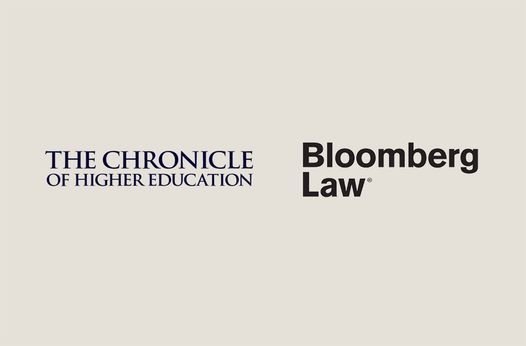Formal Opinion: Successor Counsel Must Notify Client in Writing of Predecessor Counsel's Claim on Portion of Contingency Fee
Lawyers for the Profession® Alert | 5 min read
Jul 1, 2019
Fee Division with Client's Prior Counsel, ABA Formal Opinion 487 (June 18, 2019)
Brief Summary
The ABA Standing Committee on Ethics and Professional Responsibility (the "Committee") has issued a formal opinion analyzing a successor counsel's obligations under ABA Model Rules of Professional Conduct ("ABA Rules") 1.5(a)-(c). The Committee concluded that successor counsel must notify the client that predecessor counsel may claim a portion of the contingency fee if one is recovered. The client is to be assured that this will not result in the client paying the fee twice; rather, predecessor counsel may be entitled to a portion of the fee pursuant to quantum meruit or a related theory. The Committee distinguished the predecessor/successor situation from one where two law firms or attorneys are simultaneously representing a client. Such circumstances are governed by ABA Rule 1.5(e) and require each lawyer to assume "joint responsibility" for the matter and to obtain client consent at the commencement of the action to the proposed fee division between counsel.
Complete Summary
The Committee emphasized that its opinion applied to circumstances where the client is terminating counsel without cause. Termination with cause or withdrawal by an attorney without cause may result in the forfeiture of some or all of his or her fee.
It is well-established that a client may terminate a lawyer's services at any time, but when the client terminates the services of a contingent fee counsel, without cause, the discharged counsel may be entitled to a fee for services performed before termination under quantum meruit or, in some jurisdictions, pursuant to a "conversion clause" or "termination clause" in the contingent fee agreement itself. The opinion addressed successor counsel's obligations under the ABA Rules after taking over the case if there is a monetary recovery. The Committee concluded that successor counsel must advise the client, in writing, at the time he or she is retained of the predecessor counsel's potential claim on such recovery.
The Committee's analysis began with ABA Rules 1.5(b) and (c) which require that the basis or rate of the fee and the method for computing or determining the fee be in writing signed by the client. Although not specifically addressed to the obligations of a successor counsel, "both rules are designed to ensure that the client has a clear understanding of the total legal fee, how it is to be computed, when it is to be paid, and by whom." To comply with the rules and to avoid client confusion, as a best practice, successor counsel should disclose that predecessor counsel may be due or claim a portion of the fee in the written fee agreement with the client. Disclosure in a separate document provided at the same time, however, also satisfies the rules.
If the disclosure is not made, the client may not know whether he or she must pay one or both lawyers, or the amount of fees owed. The client may be aware that termination of counsel at any time is permissible, but may not understand that termination without cause does not necessarily extinguish an obligation to pay former counsel for the value of the work performed—the quantum meruit claim. Consequently, "a contingency client should be advised by successor counsel of the existence and effect of the discharged attorney's claim for fees on the occurrence of the contingency as part of the terms and conditions of the employment of successor counsel."
Successor counsel must address with the client whether the client risks paying twice: citing ABA Rule 1.5(a), the Committee stated that a client cannot be exposed to paying more than one contingent fee when switching attorneys. Neither the predecessor nor the successor counsel would ordinarily be entitled to the entire contingent fee.
The Committee distinguished the circumstances where counsel is terminated and replaced with new counsel from those implicated by ABA Rule 1.5(e), which is designed to regulate fee-sharing between different firms that handle a case simultaneously. Under Rule 1.5(e), fees must be either divided in proportion to the work performed by each firm/lawyer or "in some other specified division where both lawyers assume 'joint responsibility' for the matter." In such cases, the client must agree to the fee arrangement, including the share that each lawyer is to receive, and the agreement must be confirmed in writing. A typical example of a Rule 1.5(e) situation would be where an attorney refers a matter to other counsel to take the lead and is to receive a portion of the contingency fee. Both firms/lawyers must agree to assume "joint responsibility" for the matter, and the client must agree to the fee division.
There would ordinarily be no "joint responsibility" between predecessor and successor counsel, and the Committee found that to "require "joint responsibility" under Rule 1.5(e) in these situations as a pre-condition to paying the predecessor counsel's fee claim is not realistic and ultimately burdens the client's ability to discharge the first lawyer and find replacement counsel. If the successor counsel would be responsible for the errors and omissions of a discharged predecessor, he or she would at best be reluctant to accept the engagement."
ABA Rule 1.5(a) rather than 1.5(e) governs when client consent is required for the allocation of the contingent fee between predecessor and successor counsel—at the end of the case. Rule 1.5(a) requires that any fee be reasonable, including the total fees of predecessor and successor counsel, and "client consent is required for all disbursements, including all fees payable to predecessor and successor counsel."
Successor counsel must comply with ABA Rule 1.15 by notifying predecessor counsel of the receipt of funds and in deciding how to handle the funds. Successor counsel may not disburse fees claimed by predecessor counsel unless approved by the client, and if there is a disagreement about the amount owed to predecessor counsel, or if the client claims predecessor counsel was discharged for cause, successor counsel must hold the disputed fees in trust pursuant to Rule 1.15.
Successor counsel may represent the client in the client's dispute with predecessor counsel (as opposed to a dispute between successor and predecessor counsel) and that representation should be reflected in either the original fee agreement or in a new or revised fee agreement. "Successor counsel must also obtain the client's informed consent to any conflict of interest that exists due to successor counsel's dual roles as counsel for the client and a party interested in a portion of the proceeds."
On the other hand, the client may not be interested in how his or her predecessor and successor counsel split the fee as long as it does not affect his or her recovery. Successor counsel may obtain client's consent to any fee split that does not alter the client's recovery. Adequate steps need to be taken to protect client confidentiality under ABA Rule 1.6, as well as any underlying settlement agreement, when counsel adjudicate their own dispute of their respective shares of the contingent fee.
Significance of Opinion
The opinion identifies successor counsel's obligation to notify a client in writing that the client's prior counsel may have a claim for a portion of the contingency fee under a quantum meruit or other contractual provision in the fee agreement, and explain that this will not result in the client paying the contingency fee to both attorneys. The opinion further distinguishes the predecessor/successor circumstances from one in which two or more counsel represent a client simultaneously. By doing so, the opinion clarifies that (a) assuming "joint responsibility" for the matter is not required by successor and predecessor counsel; and (b) the client's consent to the division of fees as between the predecessor and successor counsel is required when a recovery is obtained under Rule 1.5(a), as opposed to at the commencement of the matter pursuant to Rule 1.5(e).
Related Capabilities
Featured Insights

Employment Law Observer
Dec 8, 2025
12 Days of California Labor and Employment: 2025 Year in Review

Press Release
Dec 4, 2025
Hinshaw Recognized by the Leadership Council for Legal Diversity as a 2025 Top Performer

Press Release
Nov 25, 2025
Hinshaw Legal Team Secures Summary Judgment in Gas Station Injury Case

Press Release
Nov 18, 2025
Hinshaw Releases the Third Edition of Duty to Defend: A Fifty-State Survey

In The News
Nov 13, 2025
A Profile on Neil Rollnick: After 57 Years in Practice, He Has No Plans to Retire

Press Release
Oct 22, 2025
Hinshaw & Culbertson LLP Launches New Website and Refreshed Brand






